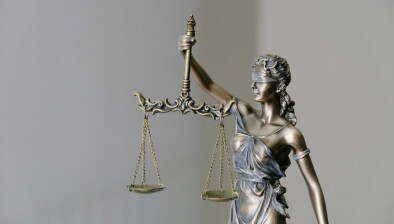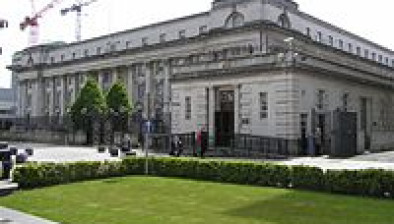Court of Appeal: No error in High Court review of Taxing Master assessment

The Court of Appeal has dismissed the appeal of a solicitor against the High Court’s refusal to review a Taxing Master’s assessment.

About this case:
- Citation:[2023] IECA 288
- Judgment:
- Court:Court of Appeal
- Judge:Mr Justice Maurice Collins
Delivering judgment for the Court of Appeal, Mr Justice Maurice Collins found that Mr Justice Donald Binchy “was particularly qualified to carry out such an exercise. He was unable to identify any error on the part of Taxing Master O’Neill such as might warrant a review of the allowances/disallowances made by him.”
Background
The appellant acted as the solicitor of Mr Denis Doyle since the 1990s, mainly providing services in relation to non-contentious business such as property transactions.
Mr Doyle raised a particular concern in relation to a deposit of €600,000 paid to the appellant by Sandystream Ltd for a property purchase. When Sandystream entered liquidation, the appellant applied the forfeited sum in discharge of his fees, rather than paying the sum to Mr Doyle. In 2011, Mr Doyle commenced proceedings seeking an order for taxation pursuant to s.2 of the Solicitors (Ireland) Act 1849.
Mr Justice Peter Charleton refused to refer bills going back to 1998, but directed that two bills relating to the Sandystream transactions would be referred for taxation. In respect of certain bills dating from 2000, the judge directed that the Taxing Master should assess whether a proper bill of costs had been furnished by the appellant and whether there was evidence of voluntary payment of those costs by Mr Doyle. The court also gave liberty to apply.
Ultimately, Taxing Master O’Neill taxed eight bills of costs in addition to the Sandystream bills, resulting in a substantial reduction to the costs claimed by the appellant.
Following an unsuccessful attempt to re-enter the proceedings in the High Court, the appellant brought judicial review proceedings challenging the Taxing Master’s entitlement to tax the eight bills, and challenged the remaining findings as having been incorrectly made on a ‘party and party’ rather than a ‘solicitor and client’ basis.
Having heard the judicial review, Mr Justice Michael Twomey determined that the refusal to re-enter the proceedings could have been appealed to the Court of Appeal, and the appellant could have sought a review of the taxation pursuant to O.99 of the Rules of the Superior Courts 1986. The appellant appealed this decision to the Court of Appeal.
In parallel, the appellant had made objections to the Taxing Master, with the Taxing Master ultimately ruling on those objections in January 2017. The Court of Appeal found that the decision challenged before it had been overtaken by the newer decision of the Taxing Master, and the appeal was unstateable.
On 2 February 2017, the appellant issued a motion seeking to review the allowances and disallowances in the Taxing Master’s ruling pursuant to O.99. The review proceeded over three days before Mr Justice Donald Binchy.
The High Court
The High Court noted the appellant’s “jurisdictional” complaint as concerning the breadth of the taxation exercise conducted by the Taxing Master, which the appellant contended was outside of his jurisdiction and had not been agreed — the High Court found that the appellant had already been unsuccessful in challenging the Taxing Master’s decision to tax the eight additional bills before the High Court and Court of Appeal, and that he had clearly submitted to the jurisdiction of the Taxing Master.
The appellant also complained that the Taxing Master had failed to apply the “conclusive presumption” in O.99, the effect of which, he alleged, was that any bill paid under the written authority of the client was not amenable to taxation and/or should have been allowed in full — the “basis of taxation ground”. This ground was rejected by the High Court as, inter alia, inconsistent with s.8 of the Solicitors Remuneration Act 1881 and s.10 of the Attorneys and Solicitors Act 1870, with the court noting that the legislation made it clear that agreements between solicitor and client are amenable to adjudication.
The residual grounds of complaint concerned the evidential basis for the Taxing Master’s conclusions, with the appellant contending that due to the passage of time, some of his files were “skeletal” and did not fairly represent the work undertaken by him. The High Court found this argument to have no substance, on the basis that there was no suggestion in the Taxing Master’s rulings that he was unable from the files provided to identify the services provided by the appellant.
With one exception, the court found that none of the allowances made by the Taxing Master required review and refused the application, directing the appellant to pay the costs of the review. The appellant appealed.
The Court of Appeal
Mr Justice Collins addressed the jurisdictional ground, highlighting the inherent jurisdiction of the High Court and its ability to direct taxation of a client and solicitor bill outside of the time limits in the 1849 Act. Finding that Mr Justice Charleton had made such an order, including an order for taxation of additional bills from 2000 onwards, Mr Justice Collins observed that in the absence of any appeal of that order, it bound the parties and the Taxing Master.
Agreeing with the High Court that the appellant was “stuck with the decision of the Taxing Master to tax the relevant accounts”, the Court noted that a jurisdictional challenge such as that before it could not have been advanced in an application for a review of a taxation as per Chubb European Group SE v Health Insurance Authority [2020] IECA 91, being more appropriate for judicial review.
Highlighting that the appellant had sought judicial review, and that the High Court was mistaken in determining that those issues should have been pursued in a review of taxation, Mr Justice Collins noted that the Court of Appeal did not decide the appeal on that basis, but rather on the basis of undisputed evidence that the appellant had agreed to taxation of the additional bills.
On the basis of taxation ground, the court noted the lack of authority on O.99, Rule 11(3) and considered s.27(3) of the Courts and Court Officers Act 1995. Quoting from Superquinn Ltd v Bray UDC (No 2) [2001] 1 IR 459, the court highlighted that the Taxing Master can conduct a “root and branch” examination of the nature and extent of the work to and can assess the value of that work on the merits.
Noting from Sheehan (an infant) v Corr [2017] 3 IR 252 that O.99 must be construed having regard to s.27 of the 1995 Act, the court determined that the Taxing Master’s entitlement to examine a bill is “not conditional upon any prior demonstration by the client that the costs claimed by the solicitor are… of an unreasonable amount or have been unreasonably incurred”.
Continuing that the Taxing Master had sufficient evidence before him, the court remarked that “what is a fair and reasonable fee in any given circumstance is not, in essence, a matter of evidence. It is a matter for the expert judgment of the taxing master and… the taxing master is clearly entitled to be informed by the submissions made to him of legal costs accountants or solicitors with expertise in the area”.
Dismissing the basis of taxation ground, the court considered the residual grounds en bloc, finding that no error on part of the trial judge could be identified.
Conclusion
Finding that the appellant had failed to establish any error in the judge’s analysis, conclusions or in the order made, the Court of Appeal dismissed the appeal and affirmed the orders of the High Court.
Buckley v O’Neill [2023] IECA 288









